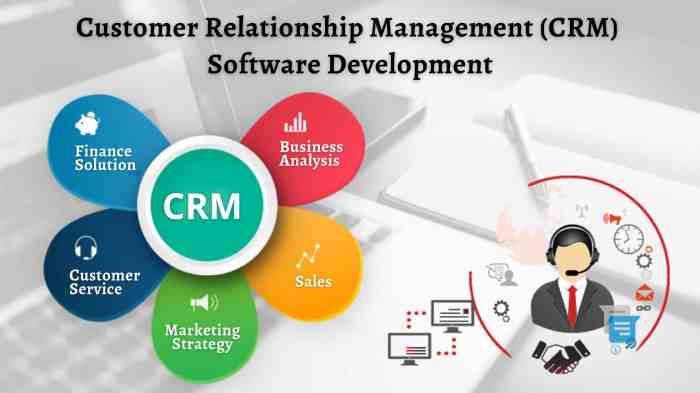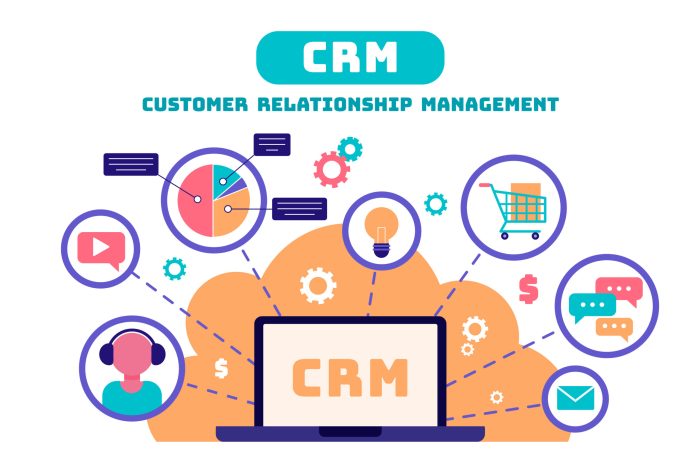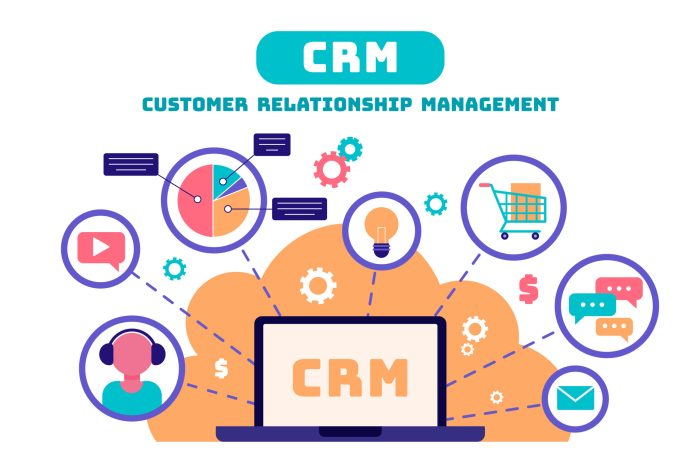Kicking off with Using CRM Tools in Marketing, this opening paragraph is designed to captivate and engage the readers, setting the tone american high school hip style that unfolds with each word.
CRM tools are the secret sauce to supercharging your marketing efforts. From analyzing customer data to crafting personalized campaigns, these tools are essential for modern marketing strategies. Let’s dive into how CRM tools revolutionize the way businesses reach their target audience and drive engagement.
Overview of CRM Tools in Marketing

CRM tools, or Customer Relationship Management tools, are software applications that help businesses manage interactions with current and potential customers. These tools play a crucial role in marketing by organizing customer data, tracking customer interactions, and improving overall customer relationships.
Benefits of Using CRM Tools for Marketing Campaigns
- Improved Customer Relationships: CRM tools allow businesses to personalize interactions with customers, leading to better relationships and increased customer loyalty.
- Enhanced Targeting: By analyzing customer data, businesses can target specific customer segments with personalized marketing campaigns, resulting in higher conversion rates.
- Increased Efficiency: CRM tools automate repetitive tasks, streamline processes, and provide insights that help marketing teams work more efficiently.
- Better Customer Service: With CRM tools, businesses can track customer inquiries, resolve issues quickly, and provide a seamless customer service experience.
Popular CRM Tools Used in the Marketing Industry
- HubSpot CRM: Known for its user-friendly interface and robust features, HubSpot CRM helps businesses manage contacts, track deals, and create marketing campaigns.
- Salesforce CRM: A widely used CRM platform, Salesforce offers a range of tools for sales, marketing, and customer service, helping businesses streamline their operations.
- Zoho CRM: Zoho CRM is known for its affordability and customization options, making it a popular choice for small and medium-sized businesses looking to improve their marketing efforts.
Implementing CRM Tools in Marketing Strategies
Integrating CRM tools into marketing strategies is essential for businesses looking to streamline their customer relationships and improve overall marketing efforts.
Utilizing CRM Tools Effectively
- Customize customer interactions: Use CRM tools to personalize communication and marketing messages based on customer data.
- Automate processes: Take advantage of automation features to save time and ensure consistent follow-ups with leads and customers.
- Analyze data: Utilize CRM analytics to track customer behavior, preferences, and engagement with marketing campaigns.
- Collaborate across teams: CRM tools allow for seamless communication and collaboration between sales, marketing, and customer service teams.
Targeting the Right Audience
- Segmentation: Utilize CRM data to segment customers based on demographics, behaviors, and preferences to target specific audience groups effectively.
- Lead scoring: Implement lead scoring models within CRM tools to prioritize leads and focus marketing efforts on high-potential prospects.
- Personalization: Tailor marketing messages and content to resonate with different audience segments, increasing engagement and conversions.
Personalization and Customer Engagement: Using CRM Tools In Marketing

In the realm of marketing, personalization and customer engagement are key elements for businesses to connect with their target audience effectively. CRM tools play a crucial role in enabling personalized marketing campaigns and fostering customer engagement.
Personalized Marketing Campaigns
- CRM tools gather data on customer preferences, behaviors, and interactions with the brand, allowing marketers to create tailored campaigns.
- By analyzing customer data, businesses can segment their audience and deliver personalized content, offers, and recommendations.
- Personalization enhances the customer experience, leading to higher engagement, loyalty, and ultimately, increased sales.
Importance of Customer Engagement
- Customer engagement is crucial for building long-lasting relationships with customers and fostering brand loyalty.
- CRM tools help businesses track customer interactions across various channels, enabling personalized communication and engagement.
- Engaged customers are more likely to become brand advocates, promoting the business through word-of-mouth and social media.
Successful Customer Engagement Strategies
- Implementing loyalty programs based on customer purchase history and preferences to incentivize repeat purchases.
- Sending personalized emails with relevant product recommendations, special offers, and event invitations based on customer behavior.
- Utilizing social media listening tools integrated with CRM to monitor and respond to customer feedback and inquiries in real-time.
Data Analysis and Insights
Customer Relationship Management (CRM) tools play a crucial role in analyzing customer data for marketing purposes. By collecting and organizing data from various touchpoints, CRM tools provide valuable insights that help marketers make informed decisions to enhance their marketing strategies.
Benefits of Data Analysis with CRM Tools
- Segmentation: CRM tools allow marketers to segment customers based on various criteria such as demographics, behavior, and preferences. This segmentation helps in targeting specific customer groups with personalized marketing messages.
- Behavioral Patterns: Through CRM tools, marketers can track customer interactions with the brand, such as website visits, email opens, and purchases. Analyzing these behavioral patterns helps in understanding customer preferences and predicting future actions.
- Performance Metrics: CRM tools provide detailed analytics on marketing campaigns, customer engagement, and sales performance. By analyzing these metrics, marketers can identify areas of improvement and optimize their strategies for better results.
Examples of Data-Driven Decision-Making in Marketing, Using CRM Tools in Marketing
- Personalized Email Campaigns: Using CRM data, marketers can create personalized email campaigns tailored to individual customer preferences and behaviors. This data-driven approach increases email open rates and conversions.
- Dynamic Website Content: CRM tools enable marketers to deliver dynamic website content based on customer data. For example, showing recommended products based on past purchases or displaying special offers to returning customers.
- Lead Scoring: By analyzing customer data in CRM tools, marketers can assign lead scores to prioritize high-quality leads. This data-driven approach helps in focusing efforts on leads that are more likely to convert, improving overall sales performance.
